Tencent and Alibaba Continue to Pursue AI: Who Will Reign Supreme?
![]() 05/22 2025
05/22 2025
![]() 580
580
China's Internet industry stands at a pivotal juncture, marked by the reconstruction of value paradigms.
After releasing its first-quarter 2025 financial report, Tencent succinctly described its AI strategy: "AI investment fuels growth, which in turn feeds back into a virtuous cycle of AI development."
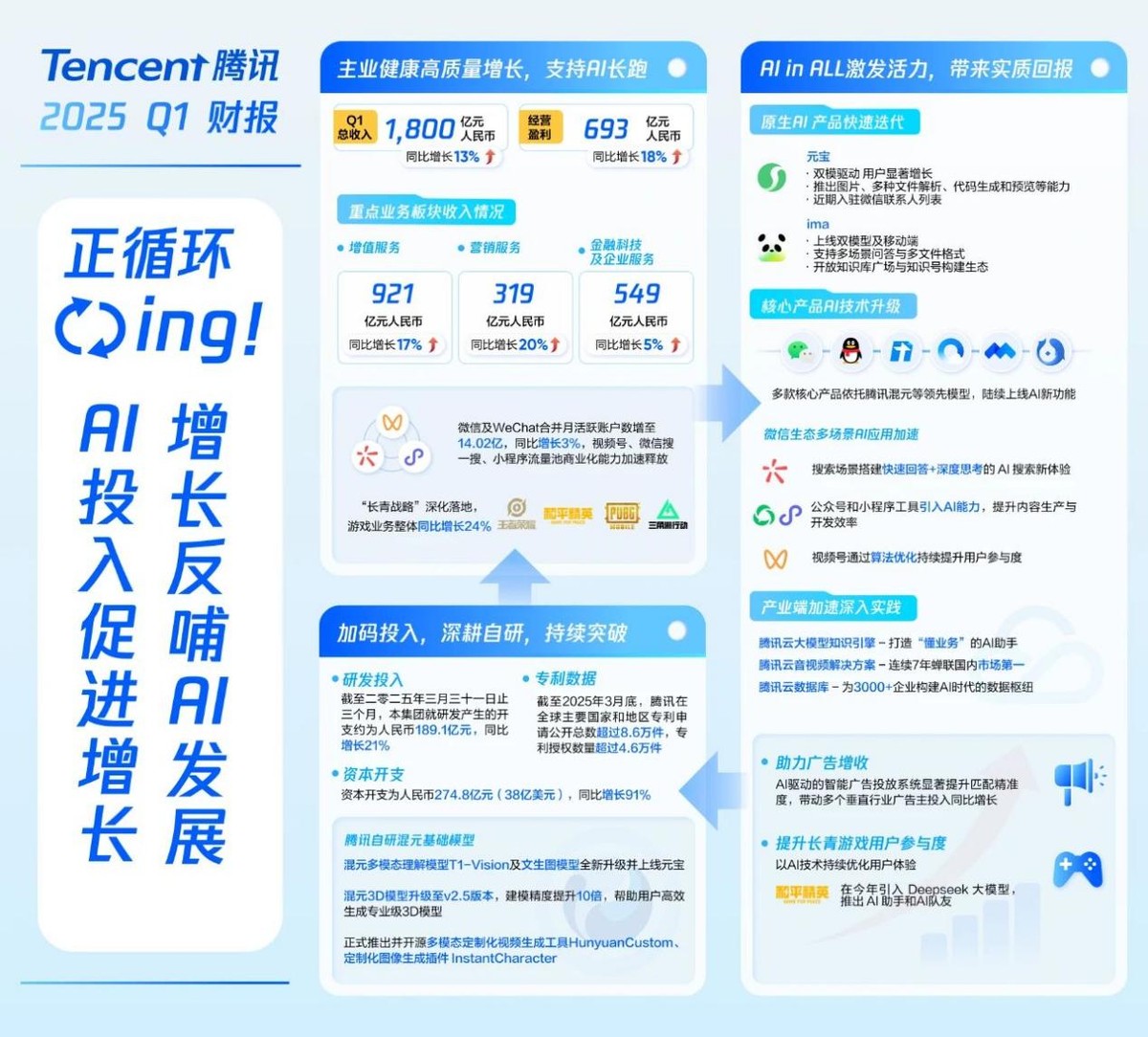
Just a day later, Alibaba, following the release of its latest financial report, stated that its strategy of "user-centric, AI-driven" continues to yield results.
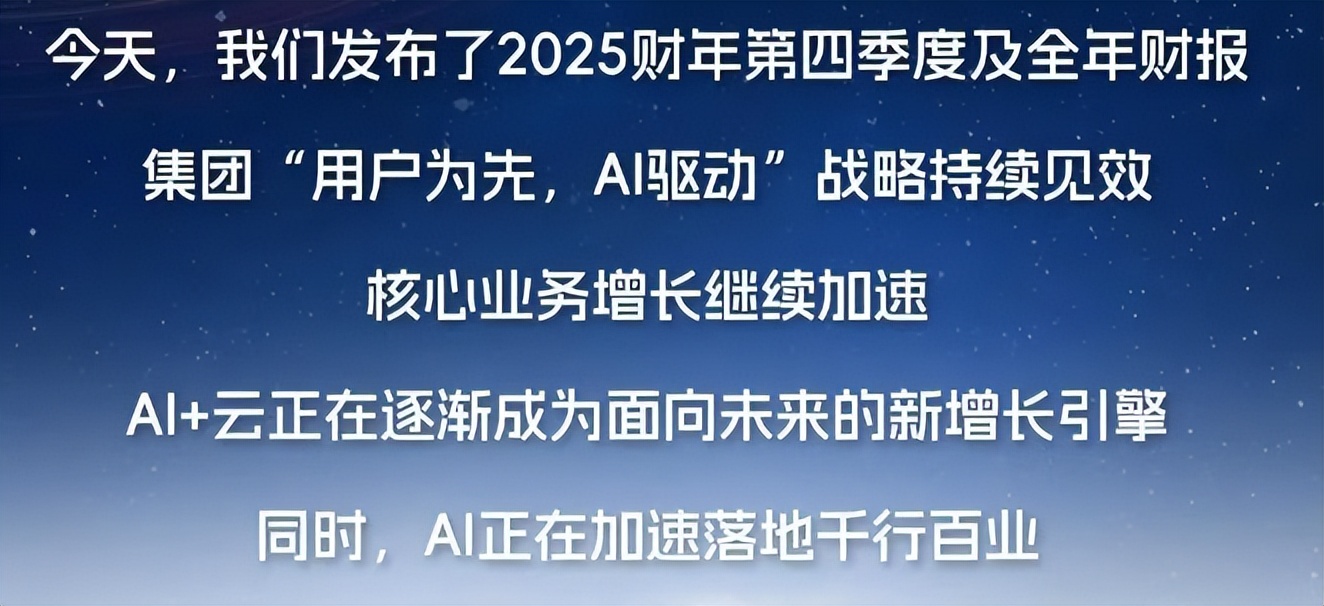
This reflects the underlying transformation logic: a paradigm shift from "traffic is king" to "intelligence is king" has commenced. The financial reports of Tencent and Alibaba are microcosms of Chinese technology enterprises redefining their growth paradigms with AI at the core.
Tencent and Alibaba vie to be the linchpin of China's AI narrative.
Goldman Sachs bluntly asserted that in China's AI industry, "Alibaba leads in AI infrastructure, while Tencent leads in AI applications." Tencent's unique and expansive traffic ecosystem serves as fertile ground for AI application implementation, whereas Alibaba, as the sole cloud business-focused service provider, stands to benefit from industry prosperity.
The latest quarterly financial reports of Tencent and Alibaba underscore the profound impact of AI on the core businesses of technology giants.
Let's start with Tencent, where AI permeates almost every aspect of its operations. Pony Ma, Chairman and CEO of Tencent, noted that AI capabilities have significantly contributed to businesses such as performance advertising and evergreen games, and that Tencent has increased investment in new AI opportunities, including Yuanbao applications and AI within WeChat.
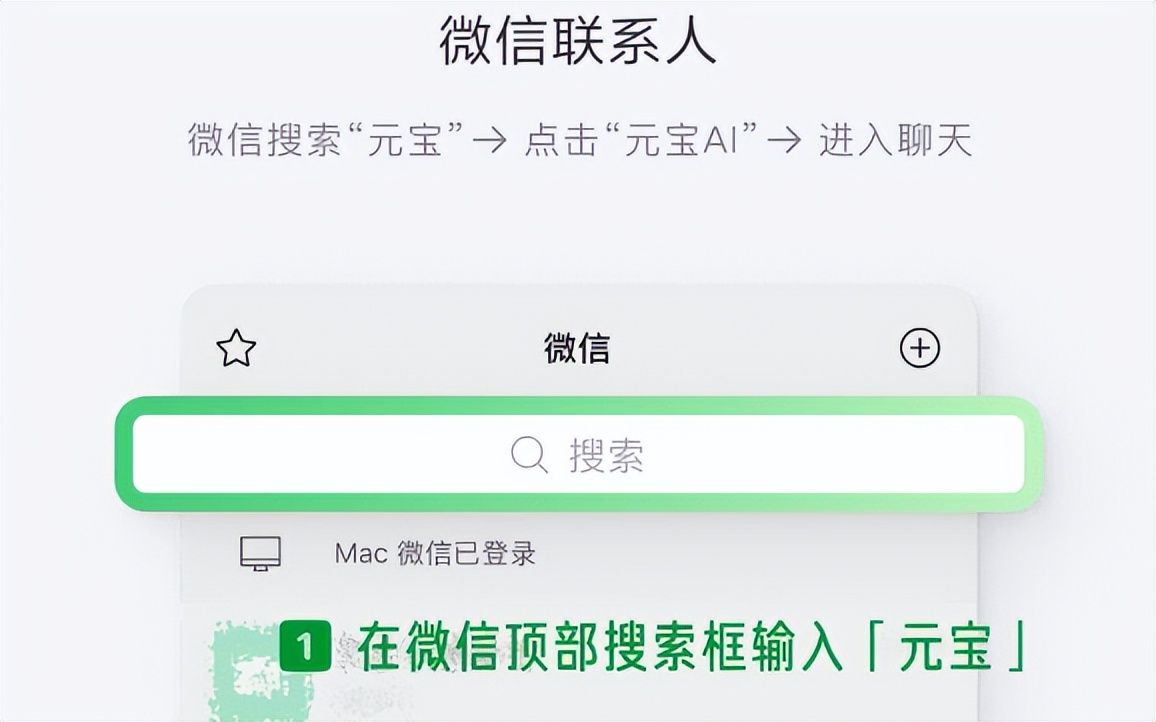
In this quarter, Tencent achieved revenue of 180 billion yuan, a year-on-year increase of 13%, with adjusted operating profit reaching 69.3 billion yuan, a year-on-year increase of 18%. Breaking it down, relying on the "evergreen strategy" and AI-optimized game user experience, value-added service revenue increased by 17% year-on-year to 92.1 billion yuan, with game segment revenue increasing by 24% year-on-year; benefiting from AI technology upgrades on the advertising platform and the strengthening of the WeChat transaction ecosystem, Tencent's marketing service revenue increased by 20% year-on-year to 31.9 billion yuan; in addition, financial technology and enterprise service revenue increased by 5% year-on-year to 54.9 billion yuan, with enterprise services showing outstanding performance and AI-related revenue achieving rapid growth.
Alibaba, too, is deeply committed to AI. On the 21st "Ali Day," Simon Tsai, Chairman of the Alibaba Group Board of Directors, firmly stated that Alibaba will integrate AI into every business and every link, and that all businesses should be AI-driven in the next three to five years.
Alibaba's revenue for the fourth fiscal quarter was 236.45 billion yuan, an increase of 7% year-on-year; net profit was 11.973 billion yuan (1.65 billion dollars), a year-on-year increase of 1203%. Breaking it down, Alibaba Cloud revenue increased by 18% year-on-year, and AI-related product revenue achieved triple-digit year-on-year growth for the seventh consecutive quarter. In addition, the total revenue of Taobao and Tmall Group was 101.4 billion yuan, an increase of 9% year-on-year; the quarterly revenue of Alibaba's International Digital Commerce Group was 33.579 billion yuan, an increase of 22% year-on-year.
Regarding the resumption of high growth, Daniel Zhang, CEO of Alibaba Group, pointed out: "The performance of this quarter and the entire fiscal year demonstrates that our strategy of 'user-centric, AI-driven' continues to yield results, and core business growth continues to accelerate."
It is evident that AI has become a driving force reshaping the growth of technology giants. However, the market's expectations for AI extend beyond feedback to existing businesses, encompassing long-term incremental opportunities.
Currently, both Tencent and Alibaba are still in the nascent stages of AI transformation and investment. The latest financial report reveals that Tencent's capital expenditure was 27.48 billion yuan, a year-on-year increase of 91%. In the previous fiscal quarter, Alibaba had already announced a 380 billion yuan AI infrastructure construction plan, and in the fourth fiscal quarter, Alibaba's capital expenditure maintained high intensity.
This scale far surpasses investments in the traditional Internet era, marking the transformation of Tencent and Alibaba from "traffic giants" and "e-commerce giants" to "AI companies." Tencent leverages WeChat's 1.3 billion monthly active users to build a closed-loop "social + AI" ecosystem, while Alibaba connects the AI needs of thousands of industries through "AI + cloud."
Both the intensity of technology investment and the depth of ecological layout reflect the determination of Tencent and Alibaba to continue occupying leading positions in the technology industry in the AI era. However, there are subtle differences in their AI-centric approaches.
Decoding the Differences in AI Strategies Among Chinese Technology Giants
As leaders in China's technology industry, Tencent and Alibaba exhibit distinct differences in strategic path choices, reflecting fundamental disparities in their strategic genes.
One leverages the user ecosystem to achieve the application implementation of "AI reconstructing everything," while the other builds an infrastructure system of "AI connecting everything" based on the computing power network, jointly illustrating the strategic evolution of Chinese technology giants in the AI era.
Specifically, Tencent can be termed a "scenario-driven ecological reconstructor."
At this stage, Tencent is accelerating the comprehensive upgrade of its AI strategy within its ecosystem, establishing a dual-mode driving system: it not only accesses external top models like DeepSeek for technological complementarity but also continuously iterates its self-developed Hunyuan large model to enhance core competitiveness. Unlike the traditional heavy investment model in infrastructure, its strategic focus is on reconstructing the value of existing ecological products through AI technology.
At the product empowerment level, Tencent has formed a matrix-style AI application layout. In this quarter, multiple products with hundreds of millions of users, such as WeChat, QQ, Tencent Docs, QQ Browser, and Tencent Meeting, have successively launched new AI functions relying on Tencent Hunyuan and external leading models. Additionally, in the gaming field, Tencent has improved user interaction experience through the DeepSeek large model, such as the AI assistant in "Game for Peace."
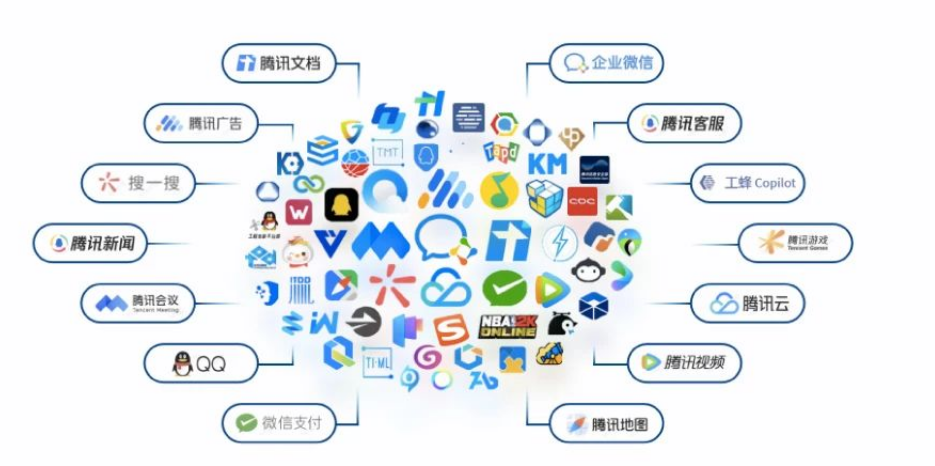
In terms of native application cultivation, Tencent fully leverages the traffic potential of the WeChat ecosystem. For instance, Tencent Yuanbao is interconnected with the WeChat ecosystem. According to QuestMobile's first-quarter 2025 AI application market competition analysis, relying on the support of WeChat's massive traffic, Tencent Yuanbao has ranked top 3 in the industry, overturning the pattern of the native AI App industry.
Therefore, from a capital perspective, Tencent's strategic value needs to be evaluated multidimensionally: focusing on game advertising growth, video number commercialization, and enterprise service efficiency improvement in the short term; in the medium to long term, attention should be paid to the AI input-output ratio, capital allocation efficiency, and the qualitative transformation process of super traffic entrances into intelligent hubs.
Alibaba's investment logic differs significantly, with the core anchor being "AI infrastructure + open-source ecosystem."
Alibaba's AI strategy exhibits distinct technical depth characteristics. Through the strategy of "380 billion yuan new infrastructure investment + full-stack technology layout + open-source ecosystem construction," it continuously strengthens its B-end ecological barriers. In terms of strategic resource allocation, the company has recouped funds by divesting non-core assets such as Intime Department Store and Sun Art Retail and invested the proceeds in the main AI track.
From the Guangming 800 chip, Flying Cloud operating system, to the Tongyi large model system, it has formed a vertical integration capability from computing power infrastructure to application innovation. In terms of open source, as of the end of April, Alibaba Tongyi has open-sourced more than 200 models, with global downloads exceeding 300 million times and the number of Qianwen derivative models surpassing 100,000, making it the world's leading open-source model.
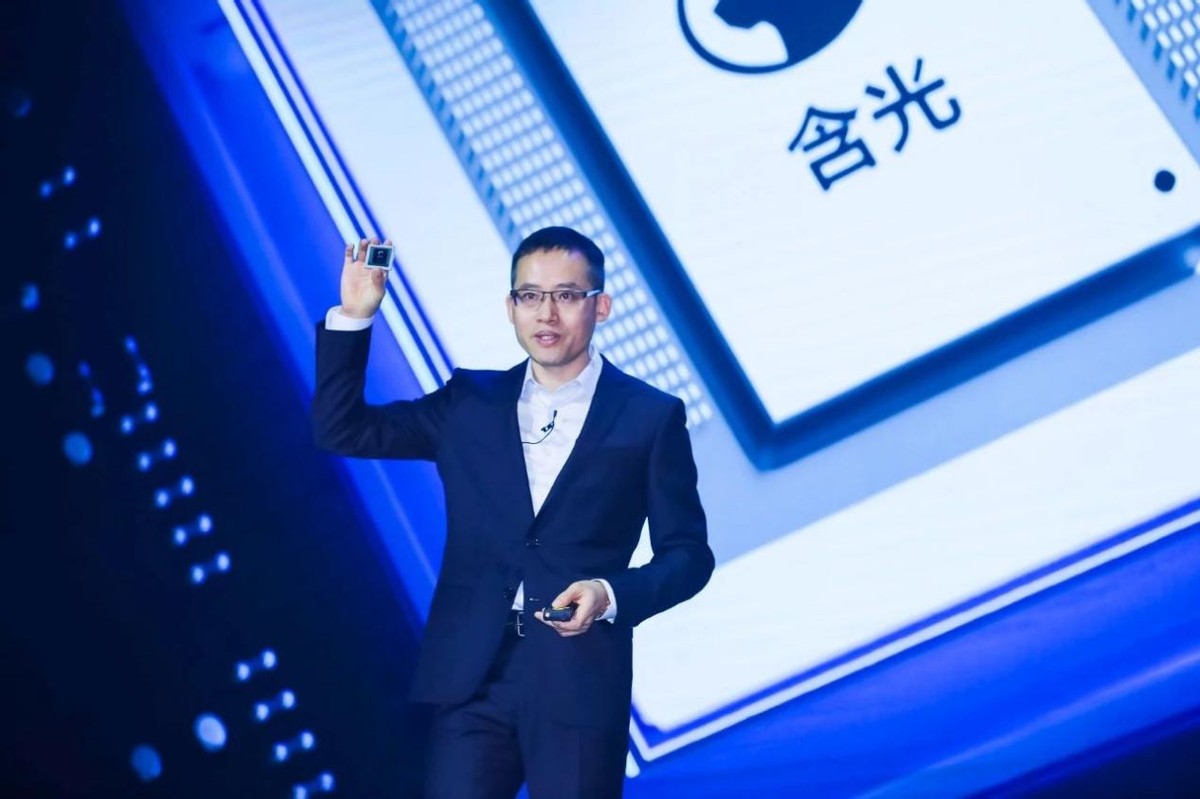
In summary, Tencent emphasizes scenario penetration, while Alibaba strengthens infrastructure and open source, essentially a strategic extension of their respective core competencies.
The former relies on the WeChat traffic pool and game user base to transform social relationship chains into testing grounds for AI application innovation, pursuing strength accumulation in the C-end ecosystem; the latter continues its decade-long accumulation in cloud computing, transforming technological advantages into a propeller for industrial intelligence, extending its first-mover advantage in the B-end.
Reconstructing the growth of China's Internet industry with AI at the core, the strategic differences between these two giants reveal the innovation of China's AI industry. It is neither a simple replication of the Silicon Valley model nor a mere technological follower but rather achieves a breakthrough in industrial transformation by feeding technological innovation back into the business ecosystem.
Three Battles Unveil the Battle for the "Stock King" in the AI Era
In Morgan Stanley's latest "China AI 60" list, Tencent and Alibaba, as benchmarks for China's platform-based technology enterprises, demonstrate a strategic pattern that leads industrial change.
Morgan Stanley points out that Chinese technology companies are focusing on how artificial intelligence can drive large-scale industrial transformation and turn constraints into opportunities.
As it says, the three fronts surrounding "constraints" in the financial reports of Tencent and Alibaba reveal the "ascension battle" of China's AI industry.
The first is the technological battle marked by high-end talent reserves.
This year, competition in large model technology is intensifying, and the domestic supply of AI talent remains scarce, pushing technology giants into a new stage of competition for top AI talent.
To serve the research and development needs after the organizational restructuring on April 29, Tencent launched its largest-ever talent training program: adding 28,000 internship positions over three years, with 10,000 famous university recruitment interns planned for 2025, 60% of which are technical positions. The Alibaba international recruitment official website also shows that 80% of the 2026 campus recruitment positions are AI-related, including AI algorithms, research and development, AI product managers, etc.
Behind this talent arms race lies a strategic window period for leading enterprises to compete for the right to set technical standards. As stated in the annual report of the Stanford AI Research Institute: "The talent density in the AI field will determine the industry landscape in the next five years."
The second is the battle for computing power infrastructure to build the industrial foundation.
The demand for computing power infrastructure is growing among enterprises. According to IDC predictions, the annual compound growth rate of China's intelligent computing power scale from 2025 to 2028 will reach 46.2%. This rigid demand for industrial intelligence is undoubtedly a strategic opportunity for technology giants to reshape the cloud service market.
Therefore, Alibaba's capital expenditure for the 2025 fiscal year increased by 184% year-on-year, and the intensity of its investment in AI infrastructure is on par with international giants. Its 380 billion yuan cloud and AI infrastructure investment plan has received the evaluation of "reconstructing China's AI narrative" from Guosheng Securities.
Tencent's investment intensity is equally astonishing. Following the record-high GPU procurement volume in Q4 2024, Tencent plans to continue expanding capital expenditure in 2025, with a focus on IT infrastructure and data center construction in the first quarter.
This strategic-level investment is bound to reshape the industrial landscape and achieve a process of popularization comparable to the revolution in the industrial Internet.
The third is the ecological battle centered on the explosion of application scenarios.
With the continuous iteration of large models, how to effectively empower enterprise applications has become a key proposition.
To this end, Tencent employs a mechanism of "application-feeding back" to continuously optimize the Hunyuan large model, thereby creating more value for the business. During the financial report conference call, Pony Ma also noted that Tencent can build a differentiated intelligent agent AI around the WeChat ecosystem, which is connected to unique components of the WeChat ecosystem, including social graphs, communication and community capabilities, content ecosystems (such as official accounts and video numbers), and millions of mini-programs within WeChat.
On this basis, what has a more far-reaching impact is the game of open-source ecosystems. Through open-source ecosystems, cloud and AI evolve deeply into industries. Tencent achieves technology spillover through the API/SDK open system, while Alibaba Cloud leverages AI capabilities to drive double-digit growth in public cloud revenue, marking the strategic transformation of cloud computing service providers into intelligent service operators.
Clearly, technology giants are competing for discourse power in the AI era through open-source ecosystems, forming de facto standards through ecological binding.
In summary, constructing a robust large-scale model necessitates addressing three pivotal issues: enhancing fundamental model capabilities, securing sufficient computing power and infrastructure, and identifying applicable scenarios. The solutions lie in talent, infrastructure, and an ecosystem.
On various fronts, including talent pools, computing infrastructure, and ecosystem development, the rapid strides made by Tencent and Alibaba underscore the commitment of these tech giants to drive industrial progress.
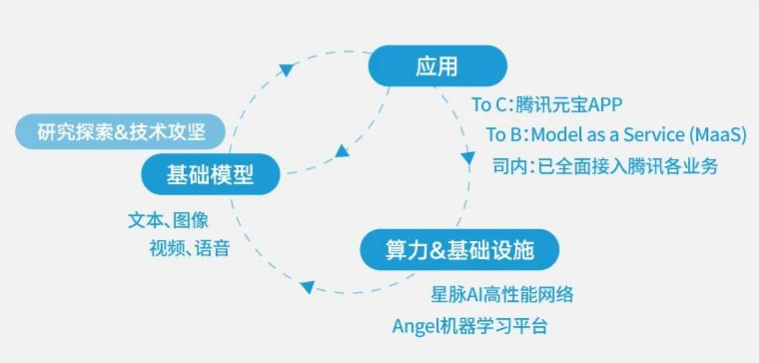
This also signals a pivotal moment where global capital is recognizing the competitive edge of China's AI sector. Deutsche Bank anticipates that '2025 will be the year when the investment community acknowledges China's leadership in global AI competition.'
Amidst the sustained high growth and significant investments by Tencent and Alibaba, traditional internet valuation models are being challenged, prompting investors to reassess the worth of 'AI companies.' The market's expectations for these tech giants extend beyond mere financial growth figures; they also encompass their influence and discourse power within the global AI industry.
The outcome of this technological transformation could redefine the notion of 'growth stocks' for the technology sector.
Source: Hong Kong Stocks Research Institute







